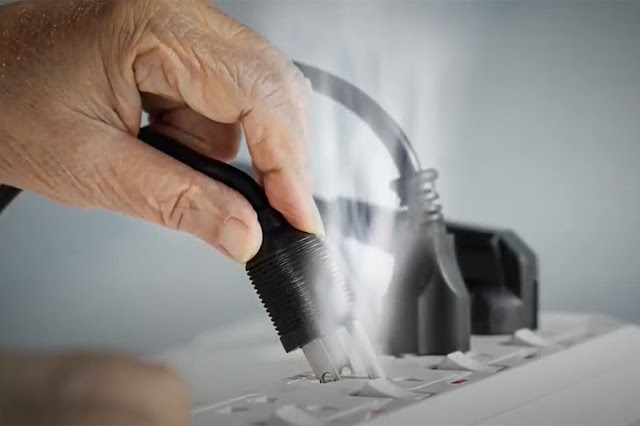Electricity is an essential part of most lives; without it, people may have to worry about things like power outages and possible fire risks. However, not all power sources are created equal, so it's important to be aware of the types of power surges that can happen and how to protect yourself and your loved ones.
One type of surge that people may not be aware of is AC surges. Electricity fluctuations in the electrical grid cause AC surges. Surge protectors can help reduce or stop surges before they cause damage to electronic equipment.
What are AC surge protectors?
Air Conditioners cool down rooms and offices to prevent any damage. However, when one of the AC cords is damaged, it can cause a surge in power that could trip some electrical devices or injure people.
A surge protector is a device used to protect the electrical wiring inside an office or home from surges in power, which could potentially damage things like computers, TV sets, and other electronics. Surge protectors work by blocking out power so that no dangerous fluctuations occur and people are not potential victims of electricity Terrorism.
Benefits of AC Surge Protectors
There are many benefits to using AC surge protectors. Some of these include reducing the amount of electrical noise that can enter your home, protecting your appliances from damage, and helping reduce the fire risk.
See the three main benefits of AC surge protectors:
- AC surge protectors can help protect your electronics from surges and voltages that could damage them.
- Using an AC surge protector can reduce the chances of any surges or voltage issues happening to your equipment.
- If you have an electronic device that relies on electricity, it is important to protect it from surges and voltages. An AC surge protector can help do just that.
If you're ever considering purchasing an AC surge protector, do so with caution; however, there are a few things to remember before making a purchase.
What type of surge protector is best?
A surge protector is an important equipment for any home or office. It helps to protect your electronics from power surges, computer crashes, and other electrical emergencies. Many types of surge protectors are available, so it's important to find the one that best suits your needs. Also, some key factors to consider are the type of device you plan to protect, the size of the Surge Protector, and the price.
-The type of protection offered: Some protectors offer plug-and-play functionality, meaning they can instantly connect to your power outlet and protect your device from surges and lightning strikes. Others offer built-in protections such as ground loop protection or line-out coverage, which means they will only directly protect devices connected to the power source (not via an Ethernet cable).
-The size of the protector: A large, bulky protector may not be able to fit in a small room, so it may not be suitable for most applications. Whereas a small, thin protector can fit in any space.
There are a few more things you want to take into account. For example, is the protector covered by a warranty? Is it easy to use and install? And what type of surge protection is it best suited for?
There are three main types of AC surge protectors: class-A, class-B, and class-C. Each type has its benefits and drawbacks.
Class-A surge protectors are the most popular because they offer high security and protection against electrical surges. In addition, they typically come with a longer life than other types of surge protectors and can handle more wattage than class-B or class-C protectors. However, they can be harder to set up and require more knowledge than other types of protectors.
Should I Install AC Surge Protectors
This review will answer the question: should you install AC surge protectors? Based on your specific needs and situation.
AC surge protectors aim to ensure that your devices are safe during an electrical storm, whether due to a power outage or an unexpected surge. While many types and styles of AC surge protectors are available, we'll focus here on select models that can help reduce the chances of damage to your devices.
When choosing the right type of AC surge protector for your home, there are a few key factors you need to consider:
- Ensure that the protector is designed specifically for your device type and model.
- Look for brands that offer a wide range of features and warranty options.
- Be sure to check out the price per foot before making a purchase.

Comments
Post a Comment